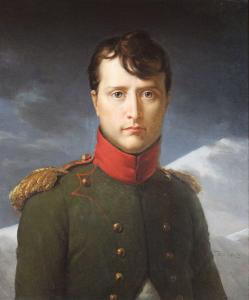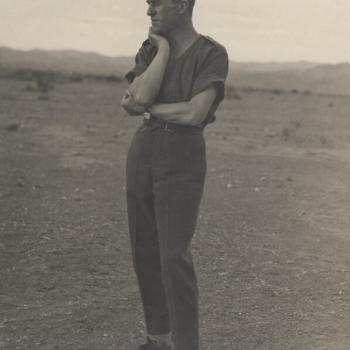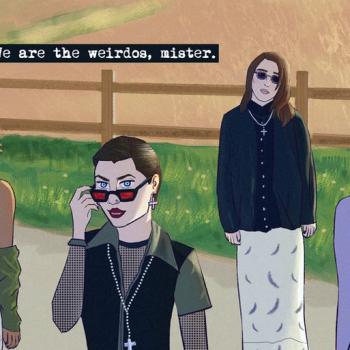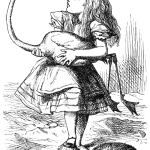
Source: Wikimedia user Dguendel
License
There is a species of genius in casting Harvey Keitel as a Frenchman. Doubly so as cavalryman in Napoleon’s Grande Armée, framed by tussles of brown hair, mustachioed lips barking “this is about ahnah! Duels a’ about ahnah!”
There is also a species of genius in casting Keith Carradine, that gaunt Californian, as Keitel’s lifelong rival. Carradine responds in unaccented, standard, white-bread American news-speak. A distant relative of Carradine’s prepared editions of Archimedes and Euclid. His parents were actors. Keitel’s mom and dad owned a Jewish luncheonette in Brooklyn. They were immigrants. The two men fight progressively and dramatically—first with fencing swords, then cavalry sabers, eventually hunting one another with pistols. Neither really knows why he fights.
British men playing French officers surround both, lending an air of traditional period cinema to what is otherwise an exercise in derangement. Having a Black man in a Gladiator movie is nothing in comparison.
In watching The Duellists (1977), Ridley Scott’s debut feature, I lost myself in the film’s love of detail. These men are hussars, cavalrymen known for their swagger and daring—think the professional athletes of Napoleonic Europe. They fight for an honor they barely understand. Scott includes (albeit briefly) Joseph Fouché, a revolutionary, counterrevolutionary, and minister of police. Fouché epitomizes the survivor. Here, he is but one indication of shifting tides. Carradine’s character marries into a royalist family. Powdered wigs and culottes make a comeback, as do footmen. No more braids and braggadocio, except for the stubborn Keitel. At no point do we see actual combat. Just personal conflict and deprivation.
Scott is so observant. His vistas look pristine, outmatched in period pieces only by the miraculous use of light in Kubrick’s Barry Lyndon (1975). Master swordsman William Hobbs choreographed the duels, which Scott shoots with a healthy mixture of quick cuts, changes in perspective, some long takes, and the occasional wide shot. The two men, so consumed by their absentminded rivalry, remain dwarfed by nature. Even their final battle takes place among ruins.
For Keitel’s character, France is a ruin. With Napoleon gone, his scandalous ways have no future. He may be insane. But we feel for him. I can’t help but see a break here with Scott’s later depiction of Napoleon. Yes, in both the Bonapartists are madmen who crave conflict. But in this case, Keitel’s frenzied dedication, while destructive and pernicious, lends him some sympathy. He is a tragic character, not one we mock.
In this sense, it’s the sheer vision of Scott’s that I admire. There’s a truism that first features always include every idea a director has stowed away—what if they never get to make another? Of course, Scott would go on to do Alien (1979) next. He did just fine. The Duellists shows restraint by way of its insanity. Casting Keitel and Carradine, I repeat, is madness on par with worshipping honor. But the film stays on topic; it pursues its characters relentlessly. Scott gives us the savage, the awesome, and the deranged wrapped up in a pretty little bow.

















